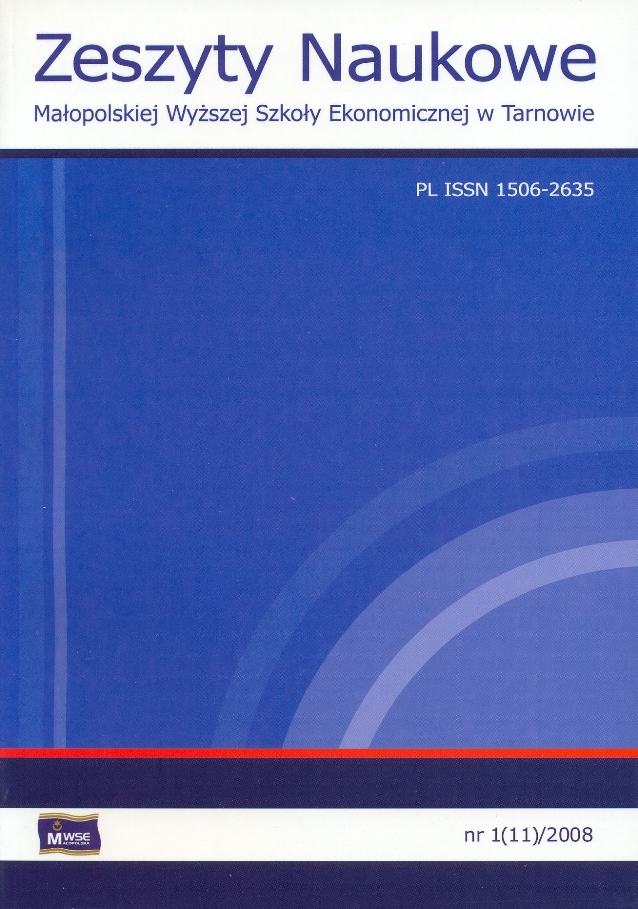Abstract
Time, in its different areas and dimensions has played an important role in production systems of an organisation, including in particular economic entities active on the market. Properly construed and correctly adjusted working time systems, production systems and even a manager’s or an employee’s own work time organisation methods contribute to growth in production factors, particularly to growth in work effectiveness, use of appliances or supply decrease.
References
Kodeks Pracy. 2008. Dział VI, Czas Pracy, Stan prawny na 1 września 2008 r., uwzględniono Dziennik Ustaw z 2008 r. nr 158 z dnia 29 sierpnia 2008 r. oraz Monitor Polski z 2008 r. nr 63 z dnia 29 sierpnia 2008 r.
View in Google Scholar
Kozioł L. 1992. Jak racjonalnie gospodarować czasem. Kraków: Wydawnictwo Secesja.
View in Google Scholar
Kozioł L. 2000. Zarządzanie czasem pracy. Kraków – Kluczbork: Antykwa. ISBN 83-87493-01-5.
View in Google Scholar
McCormick E.J. Ilgen D. 1985. Industrial and Organizational Psychology. New Jersey: Prentice-Hall.
View in Google Scholar
Missiuro W. 1947. Znużenie. Warszawa.
View in Google Scholar
Okoń J. (red.). 1971. Psychologia przemysłowa. Praca zbiorowa. Warszawa.
View in Google Scholar
Patten T.H. 1981. Organizational Development Teambuilding. New York: John Wiley and Sons.
View in Google Scholar
Seiwert L.J. 2001. Zarządzanie czasem. Bądź panem własnego czasu. Warszawa: Placet. ISBN 83-85428-30-5.
View in Google Scholar
Skowron-Mielnik B. 1993. Formy elastycznego kształtowania czasu jako narzędzie motywacji pracownika. Zeszyty Naukowe. Poznań: Wydawnictwo Akademii Ekonomicznej.
View in Google Scholar
Stalk G. jr. 1988. Time – the Next Source of Competitive Advantage. “Harvard Business Review” 1988, July – August.
View in Google Scholar
Zeit ist Geld. “Manager Magazin” 1992, nr 11.
View in Google Scholar
© Copyright by Małopolska School of Economics in Tarnów. The articles are available under the Creative Commons Attribution NonCommercial-NoDerivatives 4.0 International License


